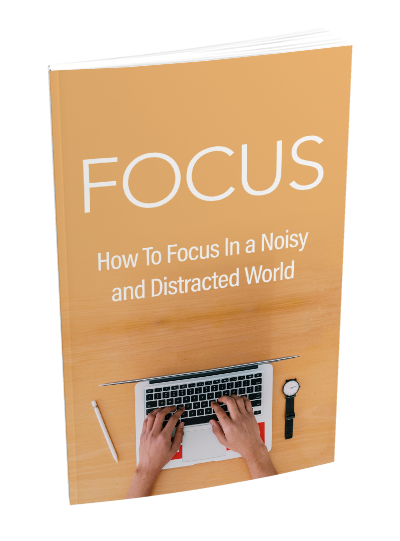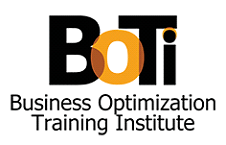Free Training & Career Tips... Subscribe to Get Weekly Career Tips

By Subscribing You are Agreeing to Terms and Conditions
What exactly is critical thinking? Essentially, critical thinking is one’s ability to think rationally and clearly in terms of what to do and what to believe with regards to a given situation. Critical thinking also involves reflective thinking as well as independent thinking. Hence, critical thinking skills include the following:
One however needs to bear in mind that critical thinking is not merely a matter of accumulating information. Someone who possesses a good memory and who is a storehouse of many facts is not necessarily proficient where critical thinking is concerned. Hence, someone who is a critical thinker possesses the faculty of being able to infer consequences from what they know and knows how to use information for problem solving and is able to keep finding new sources of information to stay informed.
While critical thinking is applied to the process of exposing errors, misconceptions or flawed reasoning it also plays an important role when applied to constructive tasks and cooperative reasoning. Therefore, critical thinking assists us in supporting arguments, expanding our theories and becoming more knowledgeable.
Critical thinking is a fundamental element of the creative process. It demands thinking ‘out-of-the-box’ and is an essential skill for improving ideas and evaluating the creative process.
In this day and age we are more aware of the need to analyse vast amounts of information that we process on a daily basis. This information is involved in the construction of the way we perceive reality and aids us in our cognitive development. Hence, critical thinking is a cognitive process that requires a systematic approach in analysing information that we accept as legitimate.
When educating people to apply critical thinking, it also means that they are working at improving their decision-making ability. It also happens that with critical thinking, opinions or information are not accepted as true or false until such has been through the critical thinking analysis process.
As There are 8 steps in the critical thinking process:

No matter what career one decides to pursue the ability to think clearly and rationally is hugely important. Pursuing a career in finance, research, management or education requires critical thinking skills. Yet, critical thinking is an advantage for any occupation.
The new era of the 4th Industrial Revolution is defined in terms of and driven by technology. Technology shifts, evolves and changes at a rapid rate and in this light one needs to be able to respond quickly and efficiently to these changes. As highlighted by the World Economic Forum Future of Jobs Report 2018, critical thinking is one of the top workplace skills required to meet the demands of the 4th Industrial Revolution since the ability to integrate varied sources of information and knowledge to solve problems in a rapidly changing workplace is paramount.
Critical thinking can improve comprehension when learning how to analyse texts with a logical structure, not to mention that the way we articulate ideas is definitely enhanced with clear, systematic thinking.
When devising creative solutions to problems the process is not only about brainstorming new ideas but those new ideas also need to be relevant and helpful to the situation in question. Therefore, critical thinking plays a vital part in the evaluation of new ideas, choosing the most appropriate ones to go with and in making adjustments where required.
Introspection is the ability to self-reflect and to endeavour to discover more about our nature and what drives us to make certain decisions and live and breathe our chosen set of values. Critical thinking is a vital part of the process of introspection, helping us to justify and come to terms with why we think, feel and act the way we do.
Companies that are hiring staff for the future would be well advised to consider the vital role that critical thinking and analysis plays. According to the World Economic Forum Future of Jobs Report 2018, Critical thinking is one of the top 10 skills required to meet the demands of the workforce as we move further into the era of the 4th Industrial Revolution, since members of the workforce need to keep pace with the rapidly changing technological advances and economic changes brought about by 4th Industrial Revolution trends. Seen in this light, it is highly developed decision-making capabilities and problem-solving skills that are required to elevate businesses to entirely new levels of operation and success largely depends on individuals being able to quickly learn new skills and to perform effectively in situations that require critical thinking and problem solving abilities.
Analysing problems involves the ability to take a problem situation, analyse it and identify the prime significance of critical elements of data. A skilled problem solver uses interpretation and analytical skills to understand the intricacies involved in any given problem situation and devise appropriate solutions.
When we talk about evaluating options what we are referring to is the ability to distinguish between different choices available when devising creative solutions to any problem, assessing the quality of those options and being able to explain the reasons for choices and decisions made based on the criteria of those options.
What deductive reasoning really involves is the ability to analyse precise contexts with the aim of being able to predict logical consequences and outcomes.
Ambiguous contexts involving risk and uncertainty require inductive reasoning capabilities to gauge the most appropriate solution to a problem given the set of available information.
Problem solving in quantitative contexts refers to the ability to reason appropriately in contexts that involve numerical data, evaluate information presented in different formats and formulate applicable solutions.
The first step in learning how to become a critical thinker involves understanding how to identify a problem. Even in the best circumstances, there is always room for improvement. Therefore, anything that needs to be improved can be defined as a ‘problem’.
Often, when trying to navigate our way through a problem the explanation itself becomes so complex that the original question gets lost. To counteract this, revisit the basic questions you posed to yourself when you first set out to solve the problem then re-evaluate the situation with these basics in mind. This will help avoid the situation where you cannot see the wood for the trees.
Taking it for granted that established assumptions are always right is a huge mistake. Innovation happens when you challenge the status quo in the light of circumstances around the problem at hand. For instance, if we consider that the world is constantly in a state of flux, shifting and evolving with the advent of new knowledge, new technologies and new ways of doing things, failing to question basic assumptions founded upon circumstances that were relevant 10 years ago for instance, is a sure fire way of closing the lid on new possibilities. Every assumption should be challenged in light of new information and fresh circumstances.
The speed of human thought is quite incredible. Yet, we need to sometimes slow it down in order to apply critical thinking to our processes. Since our brain uses mental shortcuts known as heuristics to gauge what is going on around us we need to consciously monitor our mental processes to switch into critical thinking mode. Critical thinkers are aware of their own personal prejudices and predispositions in terms of their thinking and what effect it has on how solutions are derived and decisions are made.
To help us gain a deeper understanding of the world around us as well as the things that matter to us in our own experience, we are endowed with the faculty of curiosity. Critical thinkers generally have a wide range of interests and are curious about various topics, ideas and situations. They remain curious about people and the world in general and appreciate and understand the beliefs, cultures, views and opinions that are a shared quality of humanity at large. As a result, they are considered lifelong learners. And since, by nature critical thinkers are curious, at every moment of the day there are countless opportunities for them to apply their critical thinking skills. The predisposition towards thinking critically about even the smallest issues indicates an aspiration towards positive outcomes. As such, critical thinkers ask appropriate questions, for example:
Good critical thinkers never take anything for granted. They never stop asking questions and like to investigate all aspects of an issue and discover facts hidden deep within every situation.
Critical thinkers have a tendency towards being instinctive problem-solvers at heart. One of the world’s most famous critical thinkers, Albert Einstein, had the following to say: “It’s not that I’m so smart; it’s just that I stay with problems longer.” Einstein also proclaimed that when given an hour in which to solve a problem that he would likely spend 5 minutes on the solution and the remaining 55 minutes defining the problem and researching into it. This level and patience and degree of commitment to thoroughly understanding the problem is a hallmark of the ultimate critical thinker. Therefore, being able to acquire and develop sound critical thinking skills enables us to handle significant complex problems.
Critical thinking involves numerous diverse disciplines and cultivates a wide spectrum of cognitive talents and among other things promotes stimulates the development of:
Life-long learning has become an increasingly important part of our lives. Especially now, with rapid advances in technology. Technology is an essential part of our daily lives but while a computer is able to analyse and store information it is not possible for it to work with data when it comes to those tasks involving decision making abilities. Our ability to apply critical thinking to aid us in our use of technology is much needed indispensable skill.
Reference Sources: Wabasabilearning.com, Elesapiens.com

Copyright text 2024 by Business Optimization Training Institute.